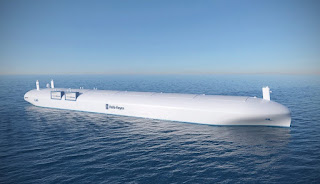Revolutionizing the Maritime Industry: The Future of Autonomous Ships
The maritime industry has been a critical component of global trade and commerce for centuries. Despite being one of the oldest industries, the sector is poised to undergo a radical transformation, with autonomous ships at the forefront of this change. The rise of autonomous ships has been driven by various factors, including technological advancements, cost-cutting measures, and a shortage of qualified crew members. This article explores the future of autonomous ships and their potential impact on the maritime industry.
What are autonomous ships?
Autonomous ships are vessels that operate without a human crew on board. They use artificial intelligence (AI), advanced sensors, and other technologies to navigate, avoid obstacles, and perform other critical functions. They can be remotely controlled from a shore-based control center, or they can operate autonomously using pre-programmed instructions.
Advantages of autonomous ships
Autonomous ships offer numerous advantages over conventional vessels. Firstly, they can operate 24/7 without breaks, allowing for faster and more efficient shipping operations. Secondly, they are expected to improve safety and reduce accidents, as they can respond more quickly and accurately to changing weather conditions and avoid collisions with other ships. Thirdly, autonomous ships are expected to reduce the carbon footprint of the shipping industry by optimizing navigation routes and reducing fuel consumption.
Challenges facing autonomous ships
Despite the many advantages of autonomous ships, there are also significant challenges that must be overcome before they can be fully implemented. One of the most significant challenges is regulatory compliance. Current international maritime regulations require that vessels be manned by a crew. As a result, regulatory agencies such as the International Maritime Organization (IMO) must establish new guidelines and rules for autonomous ships. Cybersecurity is another major concern, as autonomous ships are vulnerable to cyber attacks that could compromise their safety and security.
The future of autonomous ships
Despite these challenges, the future of autonomous ships is promising. According to a report by the market research firm MarketsandMarkets, the autonomous ships market is projected to grow from $90 million in 2018 to $13.8 billion by 2030, with Asia expected to lead the way in the adoption of autonomous ships. Some of the world's leading shipping companies, including Maersk and Rolls-Royce, are already investing in the development of autonomous ships. The advent of autonomous ships is expected to revolutionize the maritime industry by reducing costs, improving safety, and increasing efficiency.
Conclusion
Autonomous ships are set to transform the maritime industry, offering numerous advantages over conventional vessels. However, regulatory and cybersecurity challenges must be overcome before they can be fully implemented. Despite these challenges, the future of autonomous ships is promising, and they are expected to revolutionize the shipping industry in the coming years.

.png)

.png)
Post a Comment for "Revolutionizing the Maritime Industry: The Future of Autonomous Ships"